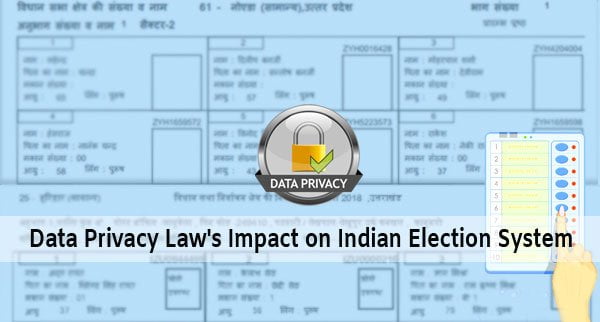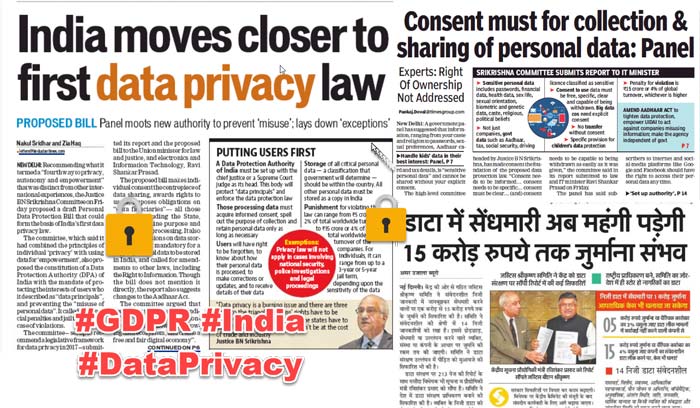Data Privacy Law’s Impact on Indian Election System
What will be the impact of Data Privacy Law on our Existing election system?
The Draft Data Privacy Law suggested by Justice Srikrishna committee says processing sensitive personal data by the State without the consent of the individual can be done for the functioning of the Parliament or a state Legislature and for providing state benefits to individuals.
But as per my view publishing personal data online (on EC Website) without any checks throws the data sets open for third parties and could be used for harmful ends. One of the primary sources of data for political data analytics is the electoral roll that can be downloaded from the Election Commission website. e.g., the names of people in the voter list coupled with their gender, and house number could be used by the third person to find out where their target lives and possibly breach the privacy of any individual.
Protecting personal data and restoring control over its ownership and flow has also become imperative ahead of the 2019 Lok Sabha elections. Demographic data of the constituencies can be extracted from the electoral roll and used for targeted campaigns in elections via social media.
A study by the University of Oxford researchers on ‘Online Social Media Manipulation’ has found evidence of such campaigns in 48 countries, including in India. The study found that political parties and governments have spent more than half a billion dollars on the implementation of psychological operations and public opinion manipulation over social media.
Facebook, for example, has faced flak for its opaque data sharing practice, after personal data on the platform was used to obtain information on hundreds of thousands of voters globally, including 500,000 people in India.
The Srikrishna Committee’s report on data privacy and protection have not factored in the need to educate officials and create institutional capacity in complying with privacy norms.
We are also seeing the ambiguity to other public databases easily available such as the list of MGNREGA beneficiaries, land records, First Information Reports, and court records, which are currently not in conformance with the draft privacy bill.
#DataPrivacyLaw #Indianelectionsystem #election2019, #GDPR

